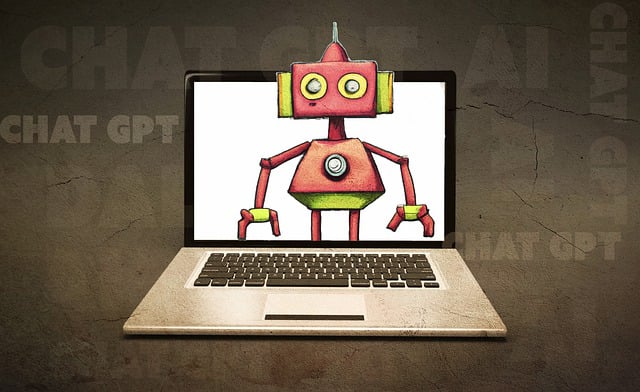# Uncovering the Future: How AI Technology is Revolutionizing Industries and Everyday Experiences
Artificial Intelligence (AI) is no longer a concept confined to science fiction; it has emerged as a transformative force across a multitude of sectors. From enhancing operational efficiency to reshaping consumer interactions, AI technology is revolutionizing industries and altering everyday experiences in profound ways. This article delves into the multifaceted impact of AI, exploring its applications in various fields and its implications for the future.
## The Industrial Revolution of AI: Transforming Business Operations
In the realm of business, AI has become a catalyst for operational efficiency and innovation. Companies are increasingly integrating AI-driven tools to automate mundane tasks, streamline processes, and enhance decision-making. For instance, in the manufacturing sector, AI algorithms analyze data from machinery to predict maintenance needs, thereby minimizing downtime and reducing costs. Predictive analytics, powered by AI, allows organizations to anticipate market trends and adjust their strategies accordingly, leading to a more agile business model.
Moreover, supply chain management has witnessed a significant overhaul due to AI technologies. By employing machine learning algorithms, businesses can optimize inventory levels, forecast demand with greater accuracy, and improve logistics. These advancements not only lead to cost savings but also enhance customer satisfaction by ensuring timely delivery of products. As companies continue to harness AI’s potential, the competitive landscape is evolving, compelling businesses to adapt or risk obsolescence.
Additionally, AI is revolutionizing customer service through the implementation of chatbots and virtual assistants. These AI-driven tools can handle a multitude of inquiries simultaneously, providing instant responses and freeing human agents to tackle more complex issues. By improving response times and enhancing user experience, businesses can foster stronger customer relationships and drive brand loyalty. The integration of AI in customer service exemplifies how technology can enhance operational efficiency while simultaneously elevating the consumer experience.
## AI in Healthcare: A Paradigm Shift in Patient Care
In the healthcare sector, AI technology is ushering in a new era of patient care and medical research. By leveraging vast amounts of data, AI systems can assist healthcare professionals in diagnosing diseases more accurately and swiftly. For example, machine learning algorithms analyze medical images, such as X-rays and MRIs, to identify anomalies that may be indicative of early-stage diseases. This capability not only aids in timely intervention but also improves patient outcomes significantly.
Furthermore, personalized medicine is becoming a reality thanks to AI. By analyzing genetic information and patient data, AI can help healthcare providers tailor treatments to individual patients, enhancing the effectiveness of therapies. This shift towards personalized care represents a departure from the traditional one-size-fits-all approach and signifies a more nuanced understanding of patient needs.
Equally important, AI is playing a vital role in drug discovery and development. The lengthy and costly process of bringing a new drug to market can be expedited through AI technologies that analyze biological data and predict how different compounds will interact with specific diseases. By streamlining this process, AI not only reduces costs but also accelerates the availability of life-saving medications to patients in need.
## AI in Everyday Life: Enhancing Consumer Experiences
Beyond industrial applications, AI technology is deeply embedded in our daily lives, enhancing consumer experiences in myriad ways. Voice-activated assistants like Amazon’s Alexa and Apple’s Siri have revolutionized how we interact with technology, enabling users to perform tasks hands-free. These AI systems utilize natural language processing to understand and respond to user commands, making technology more accessible and user-friendly.
Shopping experiences have also been transformed by AI. E-commerce platforms employ recommendation algorithms that analyze user behavior and preferences to suggest products tailored to individual tastes. Such personalized shopping experiences not only increase customer satisfaction but also drive sales for businesses. As consumers become accustomed to tailored experiences, the expectation for personalization in various aspects of life continues to rise.
Moreover, AI is enhancing the entertainment industry through content recommendation systems. Streaming services like Netflix and Spotify utilize AI algorithms to analyze viewing and listening habits, suggesting content that aligns with user preferences. This technology not only enriches the consumer experience but also fosters brand loyalty as users are more likely to remain engaged with platforms that cater to their tastes.
## The Ethical Considerations and Future Implications of AI
While the benefits of AI are substantial, ethical considerations surrounding its implementation cannot be overlooked. Issues such as data privacy, algorithmic bias, and job displacement are at the forefront of discussions about AI’s future. As organizations increasingly rely on AI systems to make decisions, ensuring transparency and accountability in these processes becomes paramount. The potential for bias in AI algorithms, stemming from the data they are trained on, raises concerns about fairness and equity in decision-making.
Furthermore, the rise of AI technology poses questions about the future of work. As automation takes over routine tasks, there is a growing concern about job displacement for certain roles. However, it is essential to recognize that AI also creates new opportunities and roles that require a different skill set. The workforce must adapt by embracing lifelong learning and acquiring skills that complement AI technologies.
In conclusion, AI technology is revolutionizing industries and transforming everyday experiences in ways previously unimaginable. From enhancing operational efficiency in businesses to reshaping healthcare and enriching consumer interactions, the impact of AI is pervasive. As we stand on the precipice of this technological revolution, it is crucial to navigate the ethical considerations and prepare for the challenges that lie ahead. The future of AI holds immense promise, and its potential to improve lives and drive innovation is only beginning to be realized.











